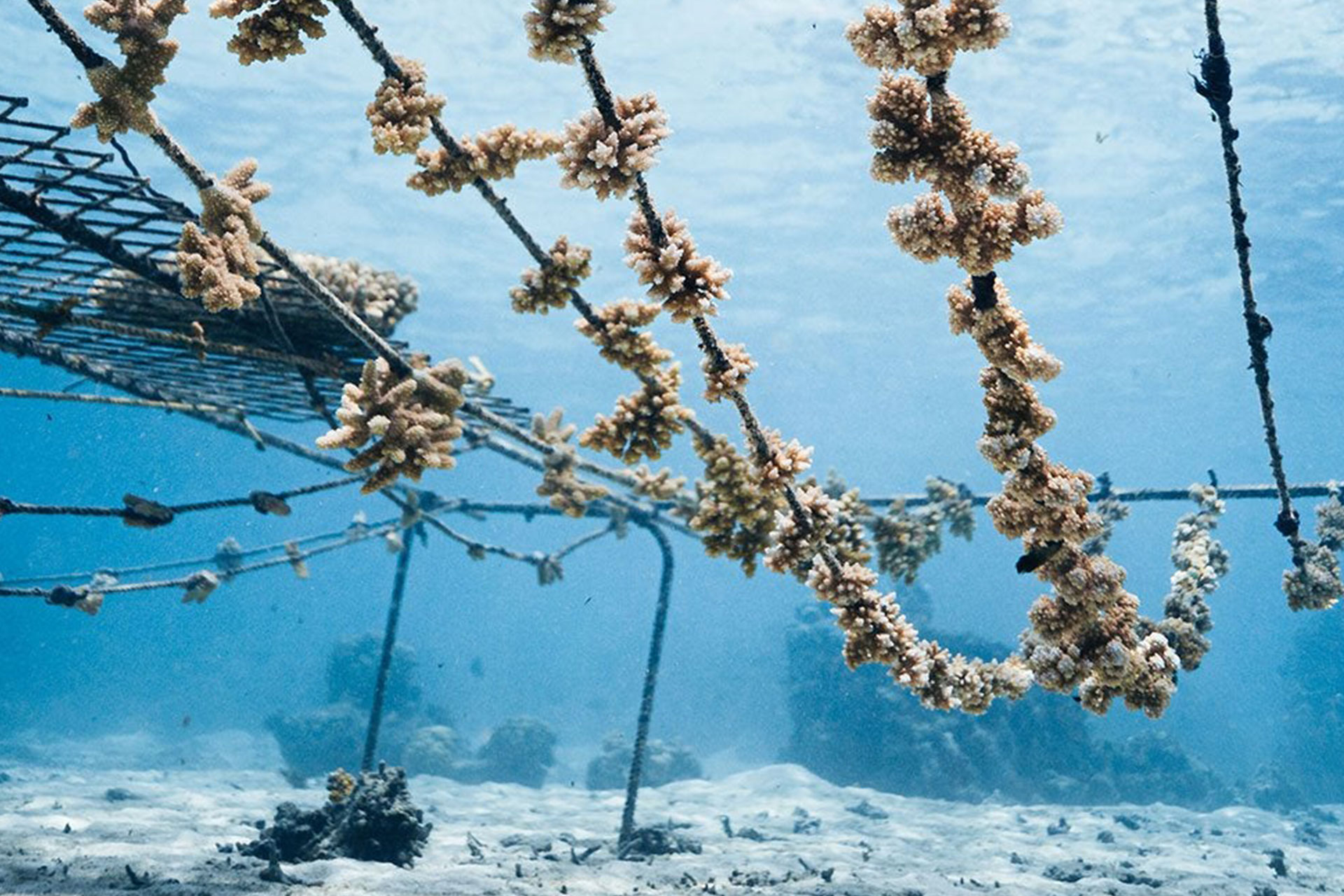North Sails has coined the definition of ‘ocean positive’ in order to guide a sustainable and committed revolution towards the seas
Ocean positivity – North Sails
When calculating the impact that a fashion brand can have on the environment, water pollution should be kept in mind. For this reason, carbon positive strategies are being developed in the area of ocean protection.
North Sails has coined the definition of ocean positivity. They have always been active in developing techniques to spread awareness of these issues. «We will be the brand that gives a voice to the ocean whilst working in the pursuit of ocean regeneration and protection», states Marisa Selfa, CEO of North Sails Apparel. The possibility of achieving this sort of goal does not derive from definitions dictated by government, associations or certifications. The only way to accomplish it is to put together a series of measures and actions designed for that purpose. Selfa continues: «There are two key pillars to becoming an ocean positive brand. Pillar one: building the ship which will allow us to reduce our impact on the planet alongside regenerative activities, whilst always paying attention to the people behind our products. Pillar two: being the voice of the Ocean. We are committed to giving a voice to the ocean and we are able to do this through our projects and ambassadors».
North Sails’ Water protection actions
Clothing manufacturers have the opportunity to focus on the selection of materials used to produce the garments. In this case North Sails, they use Seawool. It is the result of ten years of research and development, mixing reused PET bottles and surplus oyster shells.
Another issue related to the textile industry is the release of micro-plastics through washing and water discharge. They are considered high pollutants in the marine ecosystem. In this case, the brand addresses the problem by trying to sensitize and educate the customer. The solution was to offer washing machine bags that prevent plastic microfibers from being released into the environment during laundering.
Selfa points out: «We are also working on our products, trying to use natural materials as much as possible, starting with those garments that we usually wash most frequently, such as T-shirts, polo shirts and sweaters. Micro-plastics are released from synthetic fibers and not from natural ones». This is to highlight that the path towards ocean positivity is still going on.
Initiatives, research and customer activation
The brand’s initiative also runs through the current ‘Go Beyond’ campaign. It involves several ambassadors who are experts in the field. These include professional explorer and naturalist, Nacho Dean; marine conservationist, Mariasole Bianco; sailor and mechanical engineer, Kevin Escoffier; and Cristina Mittermeier and Paul Nicklen, founders of Sea Legacy. They are a collective of photographers, filmmakers and storytellers who are shedding a light on the current state of our oceans. Another front that can be activated is the active support of research and conservation programs. The Tara Ocean Foundation focuses on the study of the ocean microbiome, fundamental building blocks for the ocean. This helps is to better understand how this ecosystem performs in the current state of global change.
The Ocean Family Foundation raises awareness and provides practical help to prevent ocean pollution. Another initiative is the collaboration with Coral Gardeners. Selfa explains that they aim to provide one-year support to the NGO based in French Polynesia. Their mission is to restore and repopulate coral reefs and to educate people on the importance of corals. North Sails Apparel has also developed two capsule collections dedicated to the project. They are adopting a coral for every customer who spends at least 200 euros in the company’s store. They have also adhered to the 30×30 initiative by Worldrise. It contributes to an international effort aimed at protecting at least thirty percent of the ocean by 2030.
Certifications and collaborations in the field
There are no specific certifications or entities that attest to a company’s commitment, conservation and regeneration work in ocean ecosystems. It would be complicated to create one considering the vastness of the subject matter. For this reason, companies like North Sails rely on third-party actors to help them analyze their operations, from the manufacturing and production process, to the discovery of initiatives outside the corporate mechanism.
«In this area, the key aspect is to develop strong collaborations and partnerships with relevant organizations, with ocean conservation as their core mission. It is important to measure the impact of the projects we carry out and communicate it to ensure transparency», Selfa explains. Another step is to rely on guidelines for sustainability at government level. North Sails defined an internal Action Plan aligned with the Sustainable Development Goals. This is to outline the activities to be carried out until 2025 in each of the priority pillars.
However, this is not enough to develop the work within. The CEO confirms the involvement of third parties in the development of the project. «We are working with external consultants that have supported us in the definition of the strategy and of an action plan, with clear actions to be carried out in the next few years. We have also created an internal Sustainability Committee, composed by key figures from relevant teams, that have the role of pushing the plan implementation and monitoring progresses».
Lampoon reporting: Ocean conservation issue seen from North Sails
The data regarding the fashion industry’s impact on water is disastrous. But why do clothing brands not care about conserving the oceans? Effectively, Selfa affirms that being a business is difficult to align with certain goals. In this sense, the commitment, legislative regulations and certifications from institutional bodies could be a fundamental element. This is only if it is combined with consumer education and action.
A piece of paper doesn’t stop the brand from breaking that commitment. However, it could create guidelines with which to achieve the definition of being ocean positive. Selfa explains: «This is to say that a brand can’t suddenly change its production process as there is also the financial and business continuity part to take into consideration. However, as sustainability is now at the top of the pyramid in our objectives, in each choice we make and decision we take, we always consider the social and environmental implications».
The careful choice of selected and natural raw materials
Apart from the pollution produced by micro-plastics used, Selfa highlights how the fashion industry is dependent on water resources, in particular in its manufacturing sector.
«In terms of water resources, brands could decide, when sourcing natural fibers, to use those that require less water for irrigation. They can also collaborate with suppliers to make sure that the most water-efficient processes and machineries are used and that the highest standards in terms of chemical use and wastewater treatments are followed. And of course, use recycled materials as much as possible», says Selfa.
North Sails
Founded in 1957 by Lowell North, an American sailor and Olympic Gold Medalist. With its apparel line it highlights the authentic roots in the sailing world and its commitment to ocean conservation that is a part of its DNA.




















